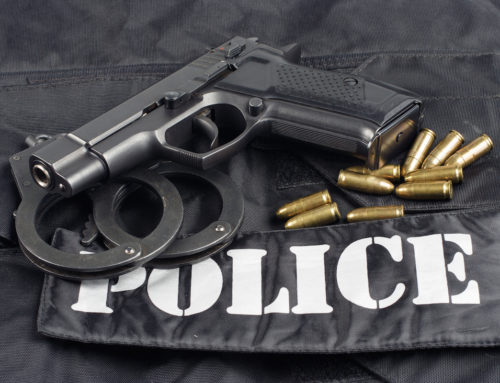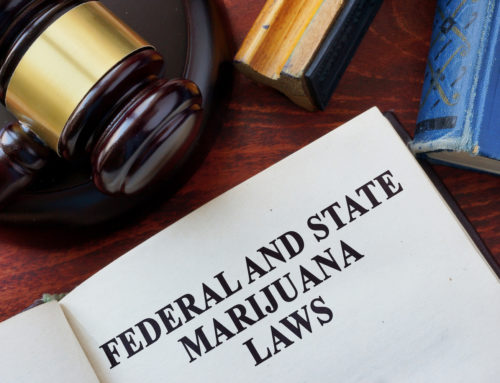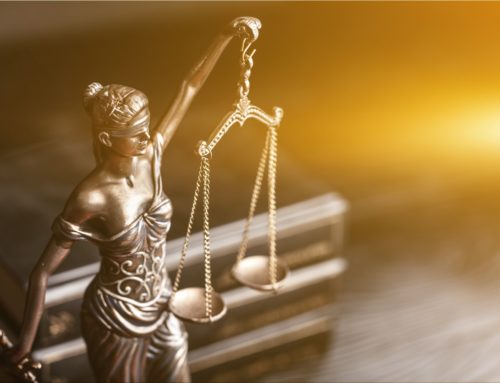 Sometimes the mistakes made many years ago have a lasting impact. A criminal record from 20 years ago can come back to haunt. Recently our office prevailed in representing an individual who was charged with violating California Penal Code 29800 commonly referred to as ex-con in possession of a gun or firearm. One of the challenges in the case was that the client had a 20 year old prior felony strike conviction for violating Penal Code 245(A)(2), assault with a deadly weapon. Our client was attending a social gathering. A noise complaint was made by a neighbor and the police arrived. A gun was found at the gathering. Our client didn’t have a gun nor own a gun. He was close to where the gun was found by the police. The prosecution wanted our client to serve 36 months in a California state prison and do 85% of his time, mainly due the prior strike. After lengthy litigation and many court appearances our office requested that the court strike the prior strike in what is called a “Romero Motion”. The court granted the motion and our client received probation and was ordered to perform community service.
Sometimes the mistakes made many years ago have a lasting impact. A criminal record from 20 years ago can come back to haunt. Recently our office prevailed in representing an individual who was charged with violating California Penal Code 29800 commonly referred to as ex-con in possession of a gun or firearm. One of the challenges in the case was that the client had a 20 year old prior felony strike conviction for violating Penal Code 245(A)(2), assault with a deadly weapon. Our client was attending a social gathering. A noise complaint was made by a neighbor and the police arrived. A gun was found at the gathering. Our client didn’t have a gun nor own a gun. He was close to where the gun was found by the police. The prosecution wanted our client to serve 36 months in a California state prison and do 85% of his time, mainly due the prior strike. After lengthy litigation and many court appearances our office requested that the court strike the prior strike in what is called a “Romero Motion”. The court granted the motion and our client received probation and was ordered to perform community service.
- The Three Strikes law
In 1994 voters of California enacted Prop 184 which resulted in state law commonly called the Three Strikes Law. Over time, the California Courts of Appeal and the California Supreme Court have interpreted the Three Strikes law. Generally under the strikes law in California, someone who has been previously convicted of a “violent felony” or a “serious felony” and who is charged with another crime can face enhanced sentencing.
- What crime’s are strikes?
Sometimes it can be difficult to determine if a prior conviction constitutes a “strike” for purposes of California sentencing laws. Over the years the list of felony convictions that constitute a “strike” in California has grown. Originally Penal Code Section 667.5(c) defined the violent felonies and Penal Code Section 1192.7(c) defined the serious felonies. Over time, certain sex crimes were added to the list. An individual charged with a felony who also has prior felony convictions should consult with an attorney experienced in dealing with the California Three Strikes laws.
- What if I was convicted in another state; can that be used against me?
If someone has been convicted of a felony in a state other than California, that “out of state” conviction can be charged as a prior strike if the person is charged with a felony in California. Pursuant to PC 667 a person convicted of a serious felony who previously has been convicted of a serious felony in this state or of any offense committed in another jurisdiction which includes all of the elements of any serious felony, shall receive in addition to the sentence imposed by the court for the present offense, a five year enhancement for each such prior conviction on charges brought and tried separately. That means of someone was convicted of a felony in Arizona, then is charged with a new felony in California, the Arizona conviction can be used in the California case. But there is something that can be done if handled by a criminal attorney with experience in challenging three strikes charges.
- Striking the prior strike
Even if someone is charged with prior strikes an experienced attorney can file special motions and request that the court not consider a prior strike when looking at the current case. This is called striking the strike. In People v. Superior Court (Romero) (1996) 13 Cal. 4th 497, the California Supreme Court held that sentencing Courts have the discretion to strike a prior conviction if it would be in furtherance of justice. This authority is given to the Court pursuant to section 1385(a) of the California Penal Code which provides that, “The judge or magistrate may, either of his or her own motion…and in furtherance of justice, order an action to be dismissed.” The Court’s decision in Romero was further expanded upon the Supreme Court in People v. Williams (1998) 17 Cal. 4th 148, wherein the Court held that in order to strike a prior, the sentencing court must consider that:
In light of the nature and circumstances of his present felonies and prior serious and/or violent felonies convictions, and the particulars of his background, character, and prospects, the defendant may be deemed outside the scheme’s spirit, in whole or in part, and hence should be treated as though he had not previously been convicted of one or more serious and/or violent felonies.Id. at 17 Cal. 4th 161.
In People v. Garcia (1999) 20 Cal. 4th 490, the California Supreme Court held that in analyzing whether to strike prior convictions, the Court should give more weight to the current charges against the defendant than the prior convictions. In that case, the California Supreme Court held that a trial court did not abuse its discretion in striking five “strike” priors with regard to one current count charging the defendant with residential burglary as the Court found that the trial court has properly found the defendant to be outside the spirit of the Three Strikes Law. In particular, the Supreme Court cautioned courts to not place undue emphasis on a defendant’s prior record and recidivism:
While a defendant’s recidivist status is undeniably relevant, it is not singularly dispositive.
Consequently, the significant, and perhaps predominant, consideration in determining whether to strike prior convictions is the nature of the present offense. As such, a defendant whose current offense is not violent or life threatening is obviously far less culpable than one who is charged with a more serious crime and the Court would be justified in striking the prior convictions when the current charge is minor. See e.g. In Re Saldana (1997) 57 Cal. App 4th 620 (solely considering a defendant’s criminal history is “incomplete with the very nature of sentencing discretion; the entire picture must remain exposed.”); People v. Bishop (1997) 56 Cal. App. 4th 1245 (no abuse of discretion when the trial court struck two of defendant’s prior convictions, despite defendant’s lengthy record of nine prior convictions).
- Striking an out of state conviction
In one case in particular in overturning the trial court’s finding that a Florida conviction for burglary of a dwelling constituted a strike for purposes of California law, the court in People v. Denard (2015) 242 Cal App. 4th 1012 held, “In order for a prior conviction from another jurisdiction to qualify as a strike under Three Strikes law, it must involve the same conduct as would qualify as a strike in California (citing People v. Woodell (1998) 17 Cal. 4th 448, 453) and the statutory elements of the California strike offense (People v. Warner (2006) 39 Cal.4th 548). There is however, no guarantee the statutory definition of the crime in the other jurisdiction will contain all necessary elements to qualify as a predicate felony in California. (Woodell at p. 453). Thus, if the foreign law can be violated in different ways, and “the record does not disclose any of the facts of the offense actually committed, the court will presume that the prior conviction was for the least offense punishable under foreign law. [Citation]”. An seasoned criminal defense lawyer can file the appropriate motion to try and have the prior felony stricken and save a defendant from spending significant time in state prison.
6. Negotiating a fair resolution to a case
In many cases once the prior strike can be stricken the attorney can negotiate a favorable resolution of a case. If someone has suffered one or more prior felony convictions and is charged with a new felony call an experienced criminal defense attorney. Even in the most difficult cases, the right criminal lawyer can get a case dismissed or negotiate a plea bargain that does result in lengthy jail or prison time. If the case cannot be resolved before a trial, the prosecutor will have to prove the validity and existence of the prior strike. This is called “proving-up” the strike. Such a trial should be handled by a lawyer with experience representing defendants charged with such serious crimes in California whether the criminal case is filed in Los Angeles, Palmdale, West Covina, Ontario or any other city in California.





